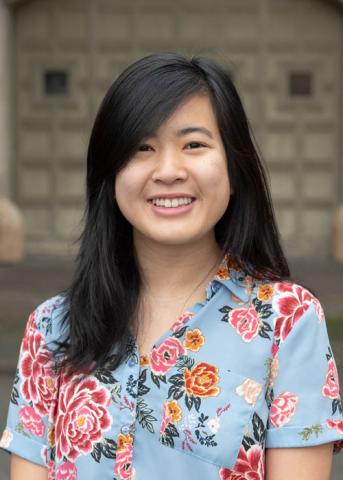Kim Anh Tran studied public health, then worked as an academic advisor at the UW. Serves as the Executive Director of Hey Mentor
Why did you choose the UW?
As a commuter, I chose to attend the UW because I knew the value of staying close to family. As a first-generation college student, I began to find my way to college when my parents found their way to America. Their sacrifice, resilience and values have led me to understand the work I wanted to pursue. As a member of the Vietnamese diaspora, I knew that my own decolonized history could be a framework for my work among communities of color to achieve health equity.
Why study public health?
I’m not sure if I chose public health or if public health chose me, because I know this is my calling. As a student from South Seattle, coming from a low-income high school, my Educational Opportunity Program adviser was helpful in discussing my options, including public health. I did research and reflected on what this major would mean for me. I’ve been fortunate to participate in programs that launched me into different spaces and opportunities, such as leadership, research, service and academic pathways.
What do you find most interesting about the field?
This field allows me to think critically, acquire research and leadership skills, and gain insight into the multitude of layers that affect one’s health. My public health courses have equipped me with the skills to build community involvement by approaching health inequities with a problem-solving lens. In my research education, I have reflected on how the classroom and local community spaces could mutually inform each other, bridging lived experiences and qualitative methods. I learned that community members are the experts in their own lives and should feel compelled to voice their health barriers with structural, cultural and historical contexts.
How did you get involved in the Anti-Racism and Community Health Conference?
As a participant in the Future Public Health Leaders Program at the University of Michigan, I immersed myself in a Health Equity Summit that validated my excitement and commitment to promoting positive health outcomes because of the varying discussions on race-based health inequities. I wanted to create a similar conference at my own university.
What did you learn from the experience?
As the conference chair for the Students of Color for Public Health registered student organization, I learned different skills such as communication, conference planning, delegation and management, and I also began to find my purpose as a leader, which is to promote diversity, inclusion and social justice at the UW and beyond.
What do you think the conference helped to achieve?
By convening a collaborative community health conference, we were able to identify and prioritize needs, barriers and solutions to confront the burden of racism that has caused detrimental health outcomes for generations across Washington state and the world. This conference had a range of public health professionals and students that critically examined their own identities and lived experiences to question how our health has been impacted by racism.
The conference gave participants an opportunity to learn how to address racism and know the different resources available for them so they can spark ideas of social change by collaborating between multiple disciplines, generations and identities. It also identified the historical roots that continue to shape modern society and perpetuate the spectrum of negative health outcomes, to provide the context to do this type of work.
What are your professional goals?
The work I am called to do is centered at the community, where I can foster a collaborative approach against inequity and indifference. I’m drawn to focusing my work on justice, policy, healing, compassion, anti-racism, education and systems. My time at the university has prepared me to be a leader who wants to learn, serve, ask questions and seek truth. By having these core values and interests, I aspire to work in different fields, whether at government agency, nonprofit, health-related startup, international organization or a university. This goal may include obtaining my masters and doctorate long term. I need to be equipped with real-world case and field work while also becoming educated in how to implement community programs.
What’s one piece of advice you have for prospective students?
Be intentional, whether that is related to your time, opportunities, classes, mentors or work. If you have the ability to, pursue what you want, but remember to ask for help and advice along the way. Find mentors and a community who want to support you.
Can you share an interesting fact about yourself?
I enjoy bullet journaling. I also keep a spread sheet of all the opportunities I apply for and like color-coding everything. My guilty pleasure is spending an unhealthy amount of time playing candy crush.

